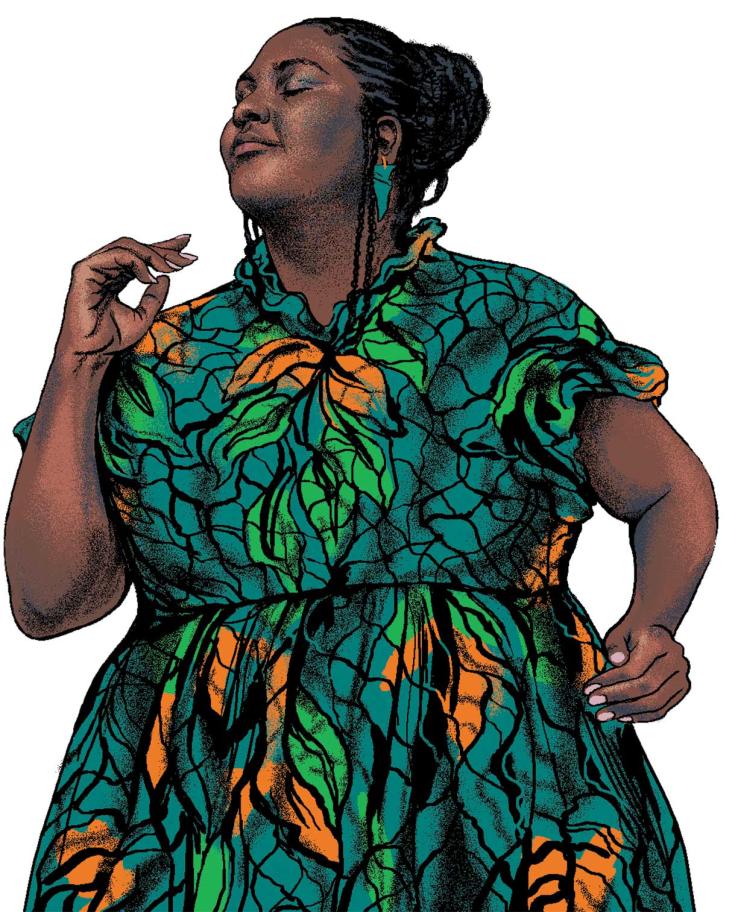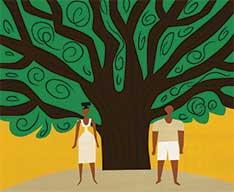
As a child visiting relatives in Kenya, theater lecturer Shariffa Chelimo Ali was mesmerized as she listened to village elders who gathered to tell stories about her tribe. Ali’s family lived in Pretoria, South Africa, and would often visit her grandmother, who had stayed in the village of Nandi Hills, Kenya. The love of storytelling that had been planted by her elders blossomed as Ali studied theater at the University of Cape Town. A year later, in 2013, she directed her first professional theater performance in Manhattan, a solo piece with movement called Still that she rehearsed on rooftops and in empty gyms.
Much of Ali’s work — which has ranged from creating virtual-reality films to directing off-Broadway productions — has explored Black and African American identities. Growing up in “a race-obsessed country,” Ali says, “has allowed me to constantly examine our shared human experiences.”
Ali’s Work: A Sampling
A Tale of TextilesA huge pile of secondhand clothing comes alive at night in We Were Everywhere, a music-theater work co-written and directed by Ali that was performed by Princeton students at the University’s Wallace Theater in 2019. The discarded clothes are being sold in an East African marketplace and tell the stories of their origins — from a cotton plantation to a shopping mall. Students helped develop the material based on their own clothing and memories. Ali co-wrote the book and lyrics while she was Princeton’s Berlind playwright-in-residence. The historial piece explores “our relationship to waste and recycling, to production, and consumption,” she says.
A Tree Transforms
Atomu is a virtual-reality short film that brings to life a Kenyan tribal myth: If you circle the mugumo tree seven times, a man may become a woman and a woman may become a man. Ali co-created the dance piece on self-discovery with childhood friend, photographer, and product manager Yetunde Dada. “I made this to start a conversation with my community — and my grandmother in particular — about queerness and transgender rights,” says Ali, who identifies as queer. There are many laws against LGBTQ rights in Kenya, she adds. The film was an official selection at the 2020 Sundance Festival and received an $80,000 POV/PBS Spark Grant.
Orphan Battle
With the pandemic shifting theater online in 2020, Ali directed the streaming play The Copper Children, by Karen Zacarias, part of the Oregon Shakespeare Festival’s American Revolutions program, which supports plays about historical moments of change. The play depicts the story of “orphan trains” that brought abandoned children from New York to Arizona mining towns in the early 20th century. A battle over who would adopt the children stirred a debate about race, law, and religion that ended up before the U.S. Supreme Court. This was the first time Ali’s family and friends in South Africa had the opportunity to see her work. A friend sent her a video, Ali recalls, “of everyone gathered around my grandmother’s TV, watching it.”



